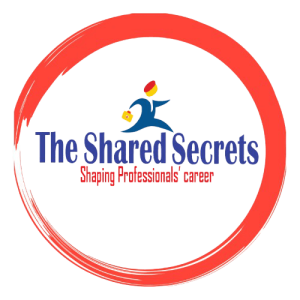Job interviews are often nerve-wracking experiences, especially if you’re naturally anxious or particularly keen on landing the role. The pressure to perform well can sometimes be overwhelming, causing candidates to stumble over their words or forget crucial points they intended to make. However, with the right interview tips and strategies, you can turn your nervous energy into confidence and make a lasting impression on your potential employer. This blog will explore essential interview preparation tips to help you stay calm during job interviews and showcase your best self.
Understanding Interview Anxiety
First, let’s dive into why job interviews make us so nervous. Interview anxiety is a common phenomenon caused by the fear of being judged, the desire to make a great impression, and the uncertainty of the outcome. It’s natural to feel some level of nervousness, but when it becomes overwhelming, it can negatively impact your performance. Understanding what triggers your anxiety is the first step in managing it. Are you worried about saying the wrong thing? Do you fear being asked a question you can’t answer? Recognizing these triggers allows you to develop strategies to manage them effectively.
Importance of Job Interview Preparation
One of the most effective ways to combat interview anxiety is through thorough job interview preparation. When you’re well-prepared, you’re less likely to be caught off guard, which in turn reduces your nervousness. Preparation boosts your confidence because it allows you to anticipate questions, rehearse your answers, and feel more in control of the situation. Remember, the more you prepare, the better you’ll perform.
Interview Tips to Calm Your Nerves
Pre-Interview Preparation Tips
Research the Company Thoroughly
Knowing the company, you’re interviewing with is crucial. Start by researching the company’s history, culture, values, and recent developments. This will not only help you tailor your answers to align with the company’s goals but also make you feel more connected to the organization. For example, if the company values innovation, you could prepare to discuss a time when you introduced a new idea in your previous job. This level of preparation shows your interest in the role and can ease your anxiety by giving you concrete topics to discuss.
Practice Interview Questions
Practice makes perfect, especially when it comes to job interviews. Conducting mock interviews, either with a friend or an interview coach, can be incredibly beneficial. Practice answering common interview questions such as “Tell me about yourself,” “What are your strengths and weaknesses?” and “Why do you want this job?” Rehearsing these questions helps you articulate your thoughts more clearly during the actual interview. You could even record yourself to see where you can improve.
Organize Your Documents
Before the interview day, ensure all your necessary documents are organized and easily accessible. This includes multiple copies of your resume, a list of references, a notepad, and a pen. Being organized helps you avoid last-minute stress and gives you one less thing to worry about.
On the Day of the Interview
Get a Good Night’s Sleep
A good night’s sleep is crucial for maintaining your calmness and sharpness during the interview. Lack of sleep can increase anxiety and impair your cognitive functions, making it harder to think on your feet. Make sure you get at least 7-8 hours of sleep before your interview.
Dress Comfortably Yet Professionally
What you wear can significantly impact how you feel. Dressing comfortably yet professionally can boost your confidence and reduce anxiety. Choose an outfit that is appropriate for the company culture but also one that you feel good in. If you’re comfortable, you’re more likely to project confidence.
Arrive Early but Not Too Early
Aim to arrive at the interview location about 10-15 minutes early. Arriving too early can increase your anxiety as you wait, but arriving late can create unnecessary stress. Use this time to gather your thoughts and calm your nerves.
Practice Mindful Breathing Techniques
Mindful breathing is an excellent tool for calming your nerves right before the interview. Take deep breaths in through your nose and out through your mouth. Focus on your breathing to center yourself and reduce anxiety. This simple technique can help you stay grounded and composed.
During the Interview
Focus on Your Breathing
During the interview, it’s easy to get caught up in your nerves, but focusing on your breathing can help you stay calm. If you start feeling anxious, take a slow, deep breath to steady yourself. This will help you stay present and focused on the conversation.
Listen Carefully Before Responding
One of the best interview tips is to listen carefully to each question before you respond. This not only shows respect to the interviewer but also gives you time to collect your thoughts. If you don’t understand a question, it’s perfectly okay to ask for clarification. Listening actively also helps you tailor your responses more effectively, reducing the chances of giving a generic or irrelevant answer.
Take Your Time to Answer
There’s no rush to answer immediately after a question is posed. It’s better to take a moment to think about your response than to blurt out something unconsidered. Pausing briefly before answering shows that you’re thoughtful and composed, even if you’re feeling nervous inside.
Reframe Negative Thoughts
It’s easy to fall into a pattern of negative thinking during an interview, especially if you’re prone to self-doubt. Instead of focusing on what might go wrong, reframe your thoughts to focus on your strengths and past successes. Remember, the interview is also your chance to assess if the job is right for you.
Post-Interview Tips
Reflect on the Experience
After the interview, take some time to reflect on the experience. Consider what went well and what could be improved for future interviews. This reflection helps you learn from the experience and prepares you better for the next opportunity.
Follow-up with a Thank You Note
Sending a thank you note after the interview is a professional courtesy that can make a lasting impression. It also gives you one last opportunity to express your enthusiasm for the role and the company.
Learn from Each Interview
Every interview is a learning experience, regardless of the outcome. Whether you get the job or not, use each interview as a stepping stone to improve your performance. Over time, with practice and persistence, you’ll find that your nerves diminish and your confidence grows.
How an Interview Coach Can Help
If you find that nerves are consistently getting in the way of your interview performance, working with an interview coach might be beneficial. An interview coach can provide personalized interview advice, help you identify areas for improvement, and offer targeted strategies to manage anxiety. They can also conduct practice interviews to simulate real scenarios, giving you valuable feedback and boosting your confidence.
Practice Interviews: The Key to Success
Practice interviews are a critical component of job interview preparation. They help you become more familiar with the interview format, refine your answers, and build your confidence. By regularly practicing with a coach, friend, or even in front of a mirror, you can greatly reduce your nervousness and improve your overall performance.
Conclusion
Job interviews don’t have to be a source of stress and anxiety. By applying these interview tips, you can prepare effectively, manage your nerves, and present yourself with confidence. Remember, every interview is a learning opportunity. With thorough preparation, mindful practices, and a positive mindset, you can overcome nervousness and make a great impression on your potential employer.
FAQs
How can I overcome extreme interview anxiety?
Overcoming extreme interview anxiety involves thorough preparation, practicing relaxation techniques, and possibly working with an interview coach. Deep breathing exercises and positive visualization can also help reduce anxiety.
What should I do if I blank out during an interview?
If you blank out during an interview, take a deep breath and ask the interviewer to repeat the question or clarify it. This will give you a moment to collect your thoughts.
Are there any specific breathing exercises recommended for calming nerves?
Yes, deep breathing exercises like inhaling slowly through your nose and exhaling through your mouth can help calm your nerves. Another effective technique is the 4-7-8 breathing method.
How long should I spend preparing for an interview?
You should spend at least a few hours preparing for an interview. This includes researching the company, practicing answers to common questions, and organizing your documents.
What if I don’t get the job after following all these tips?
If you don’t get the job, don’t be discouraged. Use the experience as a learning opportunity to improve your performance in future interviews. Every interview is a step closer to landing the right job.

